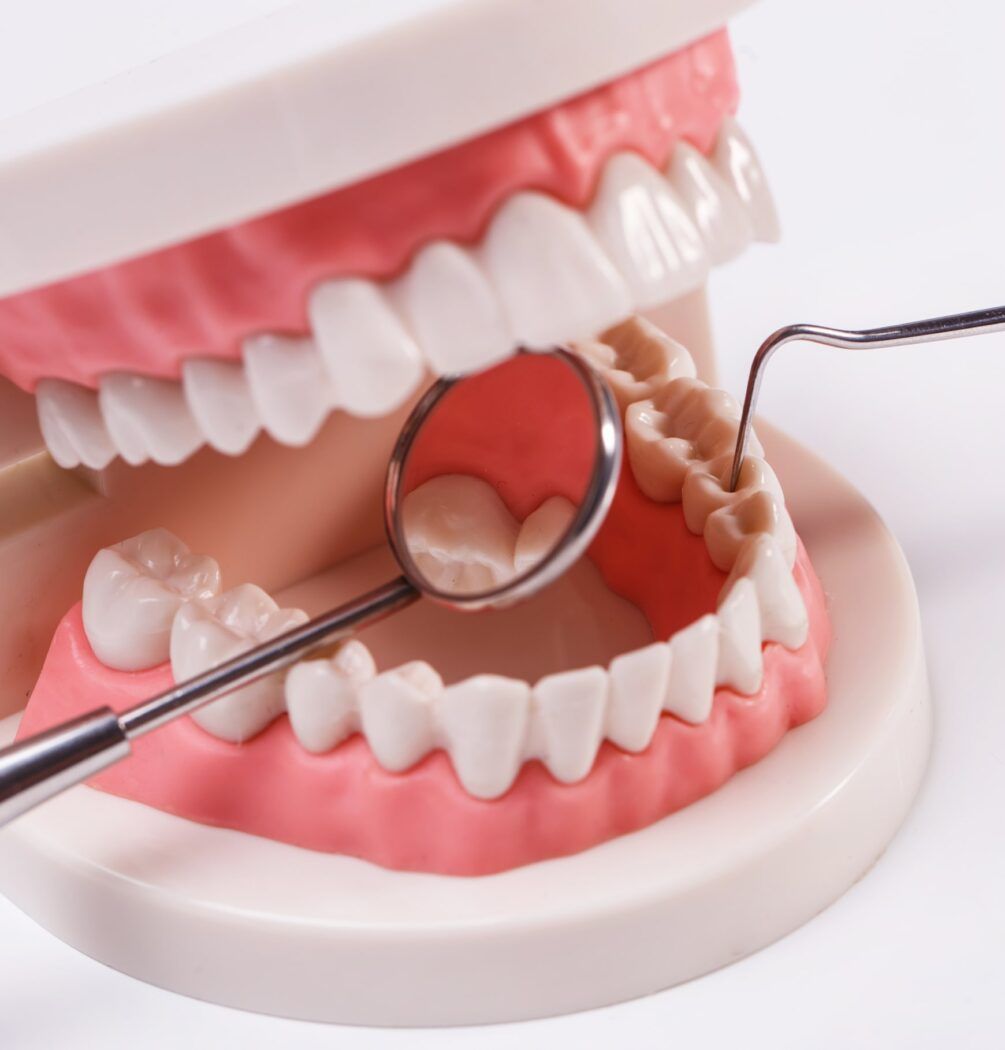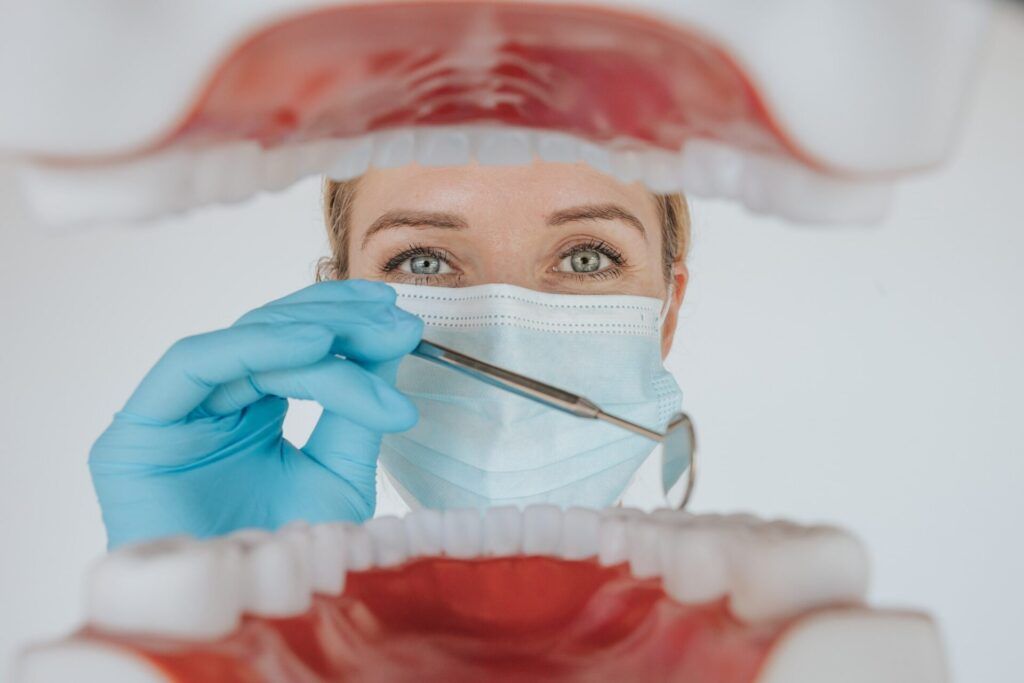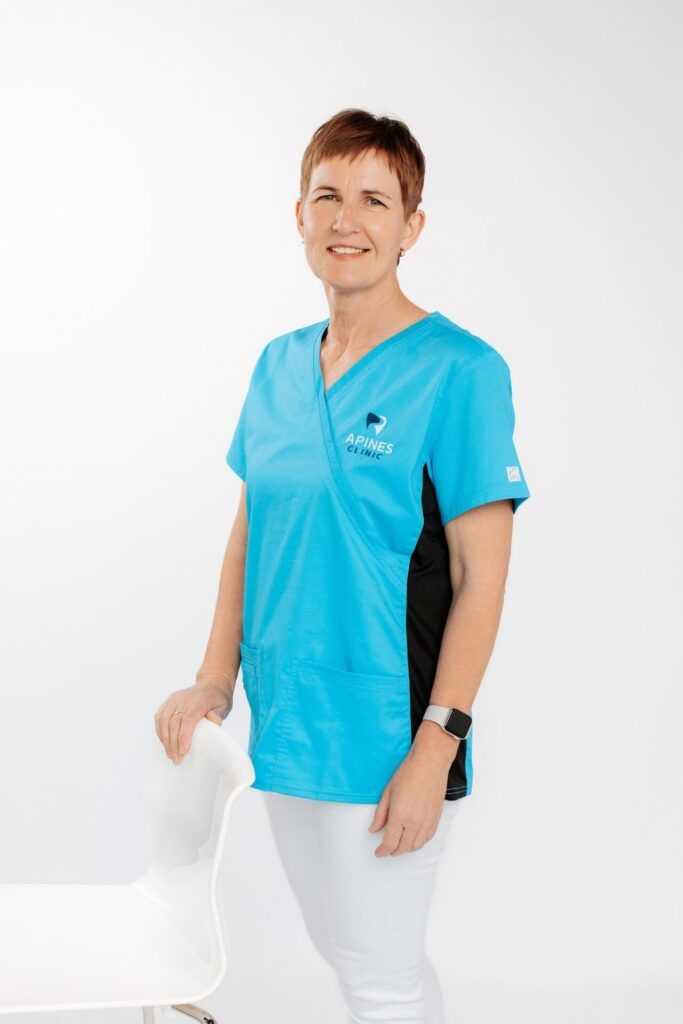
Dental hygiene

Dental hygiene is a preventive dental procedure that uses special tools to remove bacterial plaque and tartar throughout the oral cavity, even in the most difficult areas. It is essential to maintain healthy white teeth in the long term and to have fresh breath and healthy gums.
Regular brushing and flossing are the most important for oral health. However, it is not always possible to remove all plaque that builds up over time and becomes tartar.
Signs indicating the need for the procedure
- bleeding gums,
- painful gums,
- constantly bad breath,
- yellowish or brown plaque on the teeth and tongue,
- red or bluish gums,
- exposed or sensitive dental cervix.
If you drink black coffee or tea daily, smoke, or consume a lot of sugar and flour, you should see your dental hygienist at least once every six months.
Regular dental plaque removal will help you avoid:
- tartar,
- tooth decay,
- periodontitis (inflammation of the tooth base tissue),
- gingivitis (inflammation of the gums),
- tooth loss,
During the visit, our specialists will identify possible problems and advise you on any required treatment or examination.
Types of dental hygiene
Dental hygiene with ultrasound
This is the basic procedure of tartar and plaque removal. The micro-vibration ultrasonic tool removes the massive tartar from the teeth surface above the gums. However, for complete results you need to remove tartar with special hand tools called curettes. Only hand-held tools can provide high-quality tartar removal under the gums and in-between teeth. The procedure ends with dental flossing and polishing. A fluoride-containing gel is applied to protect the teeth, restoring tooth protection and reducing sensitivity.
Dental hygiene with soda stream
This is a procedure in which a strong jet removes pigmented plaque and restores the tooth’s natural color. Soda spray is suitable for patients who smoke, consume large amounts of coffee and tea, various pigmented foods. After the procedure, the teeth will become significantly whiter.
Dental hygiene for pregnant women (without ultrasound)
The removal of tartar for pregnant women is done only with a hand tool (curette). Although the above-mentioned procedures have no proven effect on the newborn, we take special precautions when taking care of the health and well-being of the new mother and the child. In addition, the teeth and gums of pregnant women are often particularly sensitive. Ultrasonic scaler can increase sensitivity and cause additional discomfort. The tartar is carefully removed both under and above the gums; then, teeth are flossed, polished and a fluoride gel is applied to restore teeth’s natural defenses.
Changes in hormone levels can cause pregnant women to have excessive bleeding, inflammation and even pain. In this case, you need to see a specialist immediately to regain health and comfort. If pregnant women do not have particular complaints in this regard, we recommend oral hygiene from the sixth to eight month of pregnancy.
Dental hygiene for children
Children from the age of two to three (as soon as ready to collaborate), also need specialist oral care. It all starts with greeting and adjusting procedures so that the child has fond memories and feelings of the dental clinic. During the procedures, teeth are polished with a paste and a soft brush, and later fluoride paste is applied. Older children also undergo tartar removal procedures with a hand tool (where necessary). The teeth are flossed, polished, and fluoride paste is applied.
How does the procedure take place?
- If the patient has excessive amounts of tartar, it is initially cleaned with an ultrasound scaler. It is a mechanical tool that removes tartar above the gums through ultrasonic vibration.
- Each tooth is cleaned with a hand tool as it is the only tool that can access hard-to-reach areas, surfaces under the gums and in-between the teeth.
- When the tartar is thoroughly cleaned, the teeth are polished with a special paste and carefully flossed.
- At the end of the procedure, the dental hygienist applies fluoride paste to restore the tooth’s natural defenses
After oral hygiene procedure, we recommend avoid eating, drinking or rinsing your mouth for 30 minutes, or taking any colored drinks (red wine, juices) and food (beets) for an hour.
How often is the procedure required?
If you drink black coffee or tea daily, smoke or consume a lot of sugar and flour products, the procedure should be scheduled at least once every six months.
For patients with increased tartar formation or non-removable dental restorations (bridges, implants), smokers, diabetic patients, patients with paradontosis, we recommend visiting dental hygienist more often than once every six months.

When to see a specialist – before or after a tooth repair?
We recommend performing the procedure prior to tooth repair in order to remove all tartar and plaque so that all teeth would be clearly visible, as the tartar often covers the damage. Furthermore, oral hygiene procedures allow gums to heal and prevent bleeding, thus facilitating tooth repair and guaranteeing high-quality sealing.
Prices
Dental hygiene
Complete dental hygiene
Dental hygiene for pregnant women (without ultrasound)
Dental hygiene with soda-jet
Dental hygiene under sedation
Our specialists









